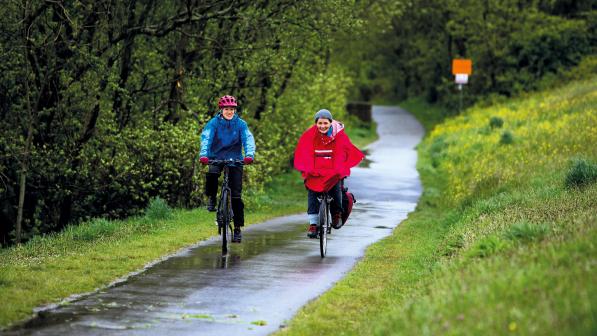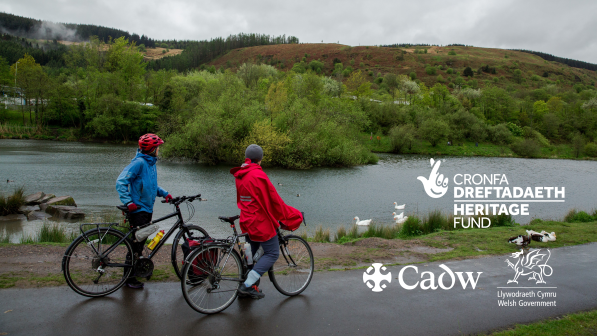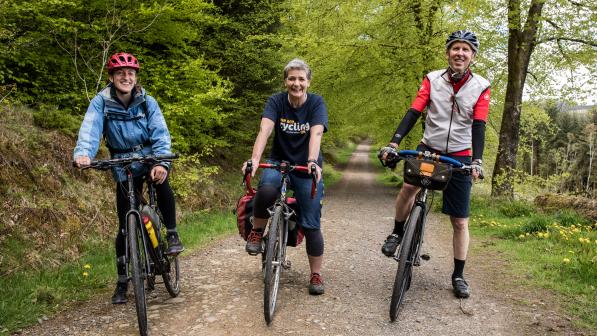Wales reaffirms commitment to creating alternatives to driving

The Welsh government yesterday (10 Feb) reaffirmed its commitment to creating sustainable transport solutions as it faces up to the Climate Emergency, saying: “We have to be willing to do things differently, and critically to give people across north Wales genuine alternatives to using their cars for most journeys.”
Through its Roads Review Panel, established in June 2021, it has set criteria for when building new roads is the correct solution to address transport problems.
The panel, made up of independent transport policy experts, yesterday published its initial report outlining how new roads should be assessed to ensure they align strategically with the Wales Transport Strategy, Active Travel Act and Future Generations Act, all of which prioritise more cycling and walking.
In addition, it has listed 55 new road schemes under consideration. These will be presented to the Welsh government by June 2022, which will then decide their future based upon the panel’s recommendations.
Wales needs to rebalance transport spending towards clean and healthy solutions
Cycling UK's engagement officer for Wales, Gwenda Owen
This report was welcomed by Cycling UK, whose spokesperson in Wales, Gwenda Owen, said:
“Instead of funding a programme of road-building that would worsen these problems, Wales needs to rebalance transport spending towards clean and healthy solutions.
“Cycling UK strongly commends the panel’s proposed approach to tackling the crucial questions it has been set up to answer.”
The Welsh government was the first national UK government to call a moratorium on new road building when it announced a national Climate Emergency back in June 2021.
“It is clear that six decades of road building hasn’t worked,” said Gwenda. “Wales’ towns and cities have become more congested, our air more polluted, our streets and rural lanes more dangerous for walking and cycling - particularly for children. Meanwhile our bus networks have withered away, and we now face a climate emergency.”
One area where work has been halted is the A55 corridor in North Wales. A new North Wales Transport Commission was announced yesterday, and it will consider improvements to cycling and walking along this stretch and in other parts of the region, following the new procedures outlined by the Roads Review Panel.
Deputy minister for Climate Change, Lee Waters said:
“If we are serious about facing up to the climate emergency, we have to be willing to do things differently, and critically to give people across north Wales genuine alternatives to using their cars for most journeys.
“As well as looking at the A55 corridor, the North Wales Transport Commission will also look at how we can improve sustainable transport options in rural areas. This will need a shift of investment towards public transport and I’m very pleased Lord Burns has agreed to lead a panel of local experts to set out a detailed list of projects that will be needed to make this a reality.
“This does not mean the end of road building, but it does mean a greater emphasis on looking after the roads we already have as well as investing in alternatives to give people a real choice.”
Cycling UK sees this as an opportunity for the commission to devise alternatives which will reduce private car usage in the area, and emulate the progress being made on active and sustainable transport in the Newport area following the decision not to build the M4 relief road.





